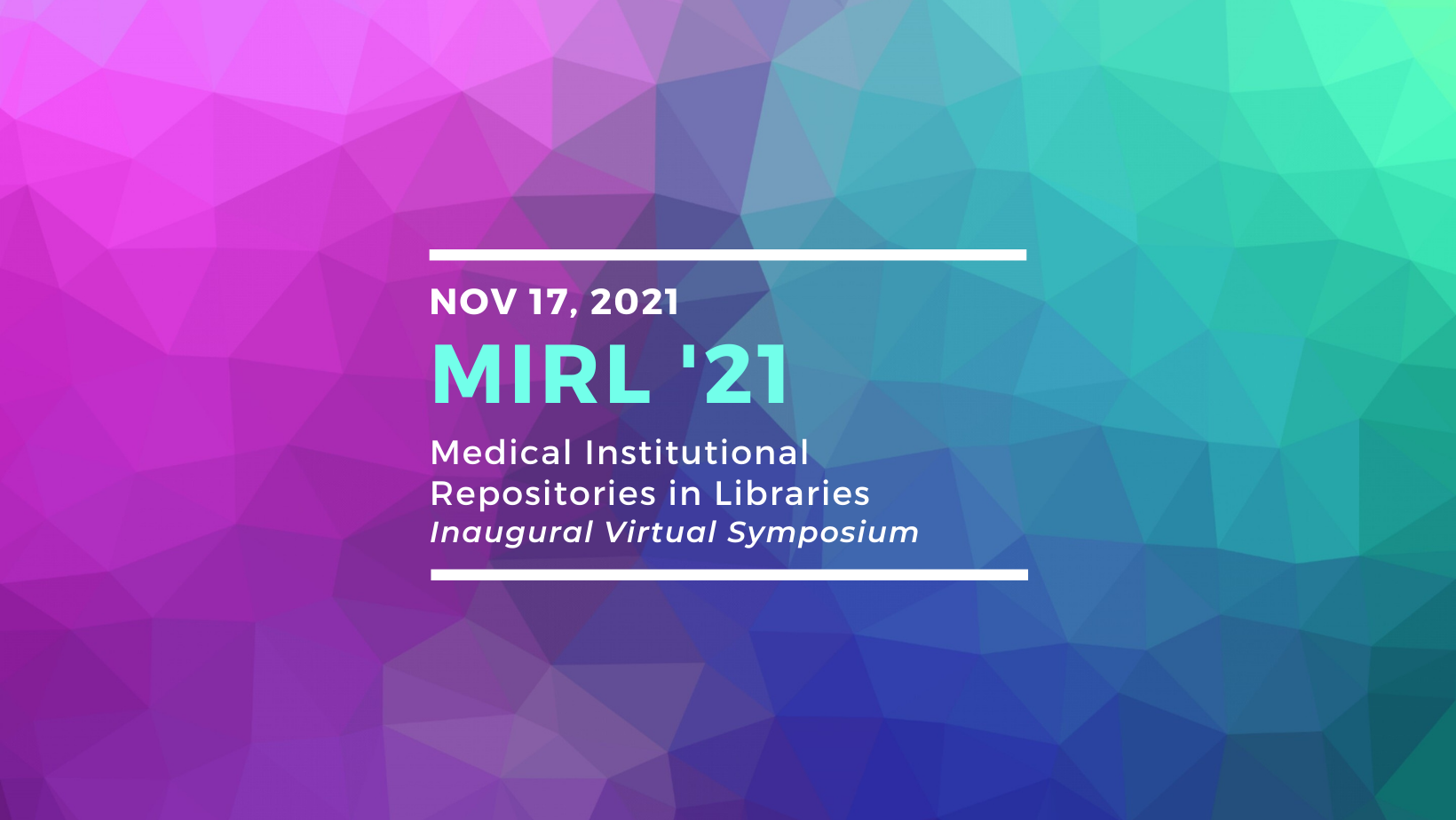Using the IR to Rapidly Respond to COVID-19
Presentation Type
Lightning Talk
Date
2021-11-17
Description
While the pandemic shut nearly everything down in March 2020, it did not slow down research at urban academic medical centers. By April 2020 our researchers had already begun publishing articles about COVID-19 and our College of Public Health had organized a special lecture series devoted to public health and the novel coronavirus. Before long there were special Grand Rounds, conference posters, capstone presentations, infographics, and more devoted to understanding the impact of COVID-19 from a variety of perspectives. The institutional repository was integral in quickly publishing and sharing COVID-19 research and information with others. However, because material was being produced by students, university faculty, and hospital researchers across myriad departments, it was similarly distributed across the IR. Utilizing an artificial series allowed all of this content to be gathered in one location, easily accessible from a single link on the IR homepage. As of summer 2021 this series had more than 200 items and was still growing.This use case shows the power of institutional repositories in rapidly responding to current events. Material was accessible online almost immediately upon creation (as opposed to the traditional publishing timeline) and could be organized in distinct and grouped collections (allowing multiple ways of discovery). We hope this model can be used by other institutions moving forward as they grapple with future topics and events.
Keywords
institutional repositories, health sciences, Medical Institutional Repositories in Libraries, MIRL, MIRL 2021, COVID-19
Open Access
1
Rights and Permissions
Copyright © 2021 Duinkerken
Repository Citation
Duinkerken, Kelsey, "Using the IR to Rapidly Respond to COVID-19" (2021). Medical Institutional Repositories in Libraries (MIRL). 37.
https://hsrc.himmelfarb.gwu.edu/mirl/2021/program/37
Using the IR to Rapidly Respond to COVID-19
While the pandemic shut nearly everything down in March 2020, it did not slow down research at urban academic medical centers. By April 2020 our researchers had already begun publishing articles about COVID-19 and our College of Public Health had organized a special lecture series devoted to public health and the novel coronavirus. Before long there were special Grand Rounds, conference posters, capstone presentations, infographics, and more devoted to understanding the impact of COVID-19 from a variety of perspectives. The institutional repository was integral in quickly publishing and sharing COVID-19 research and information with others. However, because material was being produced by students, university faculty, and hospital researchers across myriad departments, it was similarly distributed across the IR. Utilizing an artificial series allowed all of this content to be gathered in one location, easily accessible from a single link on the IR homepage. As of summer 2021 this series had more than 200 items and was still growing.This use case shows the power of institutional repositories in rapidly responding to current events. Material was accessible online almost immediately upon creation (as opposed to the traditional publishing timeline) and could be organized in distinct and grouped collections (allowing multiple ways of discovery). We hope this model can be used by other institutions moving forward as they grapple with future topics and events.


